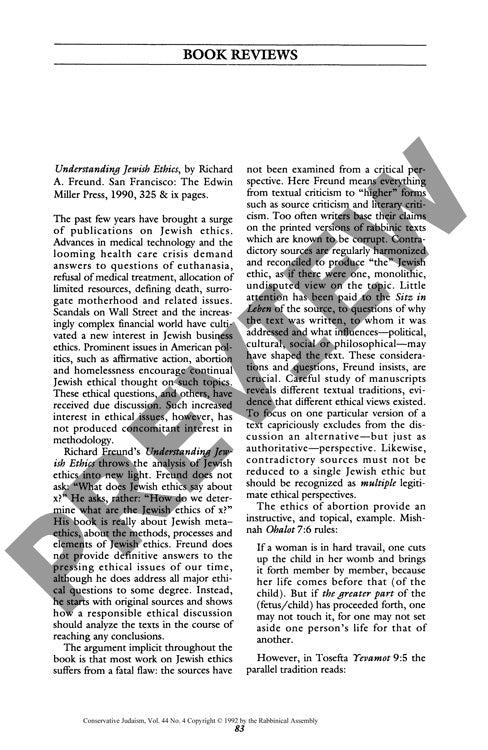Book Reviews
Couldn't load pickup availability
Contemporary Jewish ethical scholarship stands at a crossroads between academic rigor and religious meaning-making, as revealed through critical analysis of major recent works by Richard A. Freund, Roger Brooks, John J. Collins, Edward Feld, David J. Wolpe, and Arthur Hertzberg. A careful examination of these texts exposes significant methodological concerns, particularly Freund's compelling argument that scholars have failed to apply sufficient textual criticism to rabbinic sources, instead harmonizing contradictory traditions into an artificial unified "Jewish ethic." Through critical review of works spanning Jewish ethics, biblical studies, theology, and American Jewish history, fundamental tensions emerge between academic and normative approaches to Jewish texts. These tensions carry profound implications for the construction of Jewish ethics in an era of historical criticism. The analysis further illuminates challenges in Jewish-Christian biblical dialogue, post-Holocaust theological responses, and questions about American Jewish identity's future viability when based on symbolic rather than substantive engagement with Jewish texts. While rigorous textual criticism of traditional Jewish sources proves methodologically essential, it creates fundamental challenges for normative Jewish ethics by revealing multiple legitimate but contradictory perspectives within the tradition. This comprehensive review demonstrates that contemporary Jewish scholarship must chart a careful course between maintaining academic objectivity while preserving religious significance in addressing crucial ethical and theological questions.

More Information
-
Physical Description
-
Publication Information
Published 1992
ISBN
-
Publication Credits

